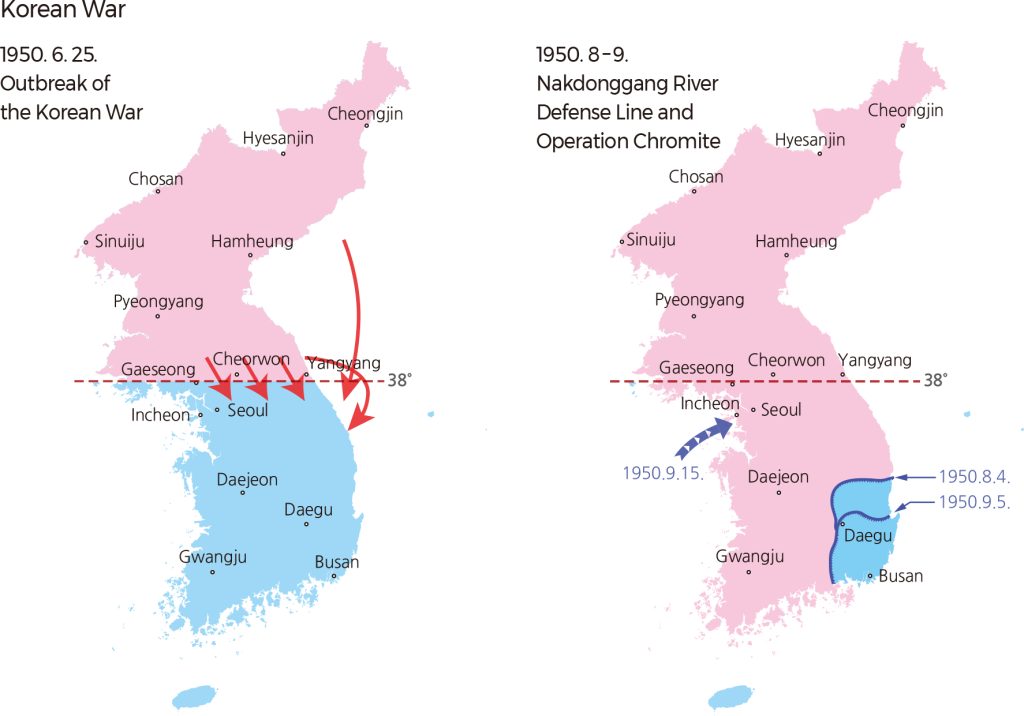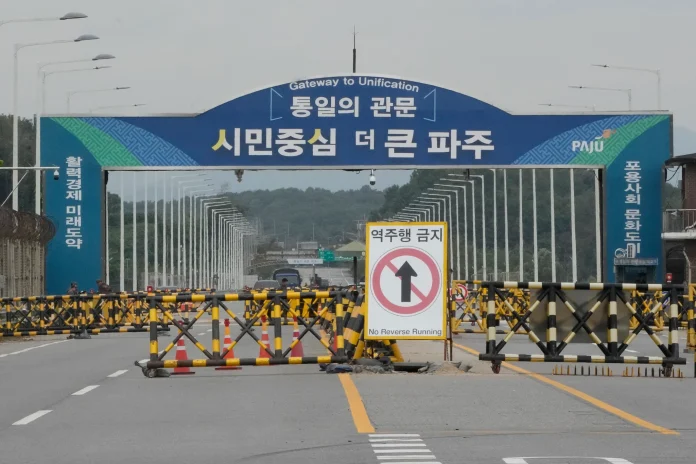North Korea detonated explosives on Tuesday to destroy sections of inter-Korean roads and rail lines along its side of the heavily fortified border, escalating tensions with South Korea. The demolition took place just hours after North Korea had announced its intentions to sever the cross-border transportation links completely. In response, South Korea’s military fired warning shots south of the demarcation line, though no damage occurred on Seoul’s side of the border.
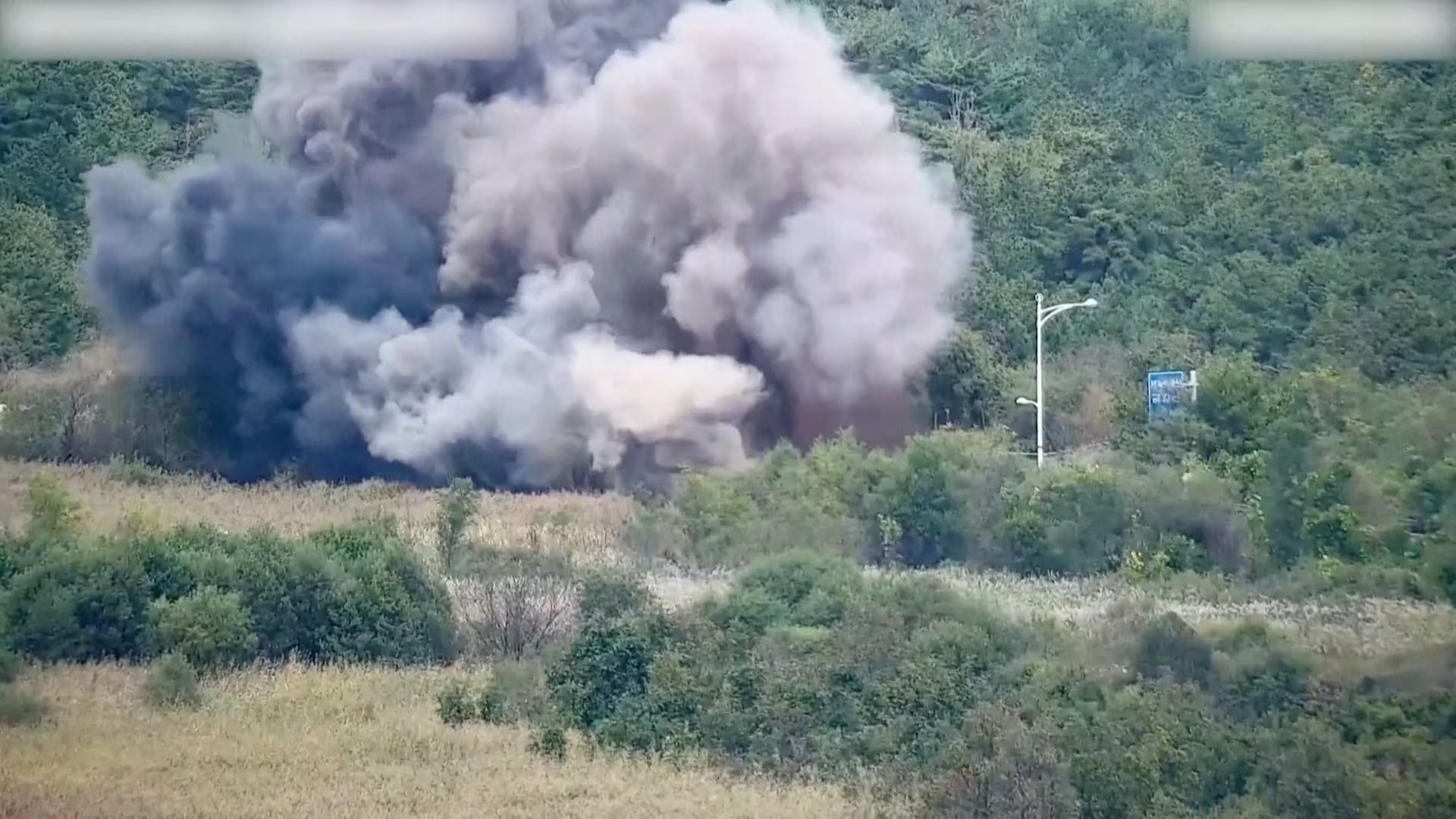
Pyongyang’s decision to blow up parts of the roads and rail lines marks a significant step in its ongoing effort to fortify the border and cut off the South from access to its northern region. This action follows last week’s announcement by North Korean authorities that they would further solidify the areas on their side of the border, signaling a shift in their stance towards the South. The North’s government has been pushing for a “two-state” system, which effectively abandons the long-standing goal of unification with South Korea.
Seoul’s unification ministry condemned the demolition, calling it a clear violation of previous inter-Korean agreements. Ministry spokesperson Koo Byoung-sam expressed regret over North Korea’s actions, describing the behavior as “highly abnormal” and counterproductive to any future reconciliation efforts between the two nations. Tensions had already been running high following North Korea’s accusation that South Korean drones had been flown over Pyongyang, allegedly dispersing anti-North leaflets—a move that further inflamed the situation.
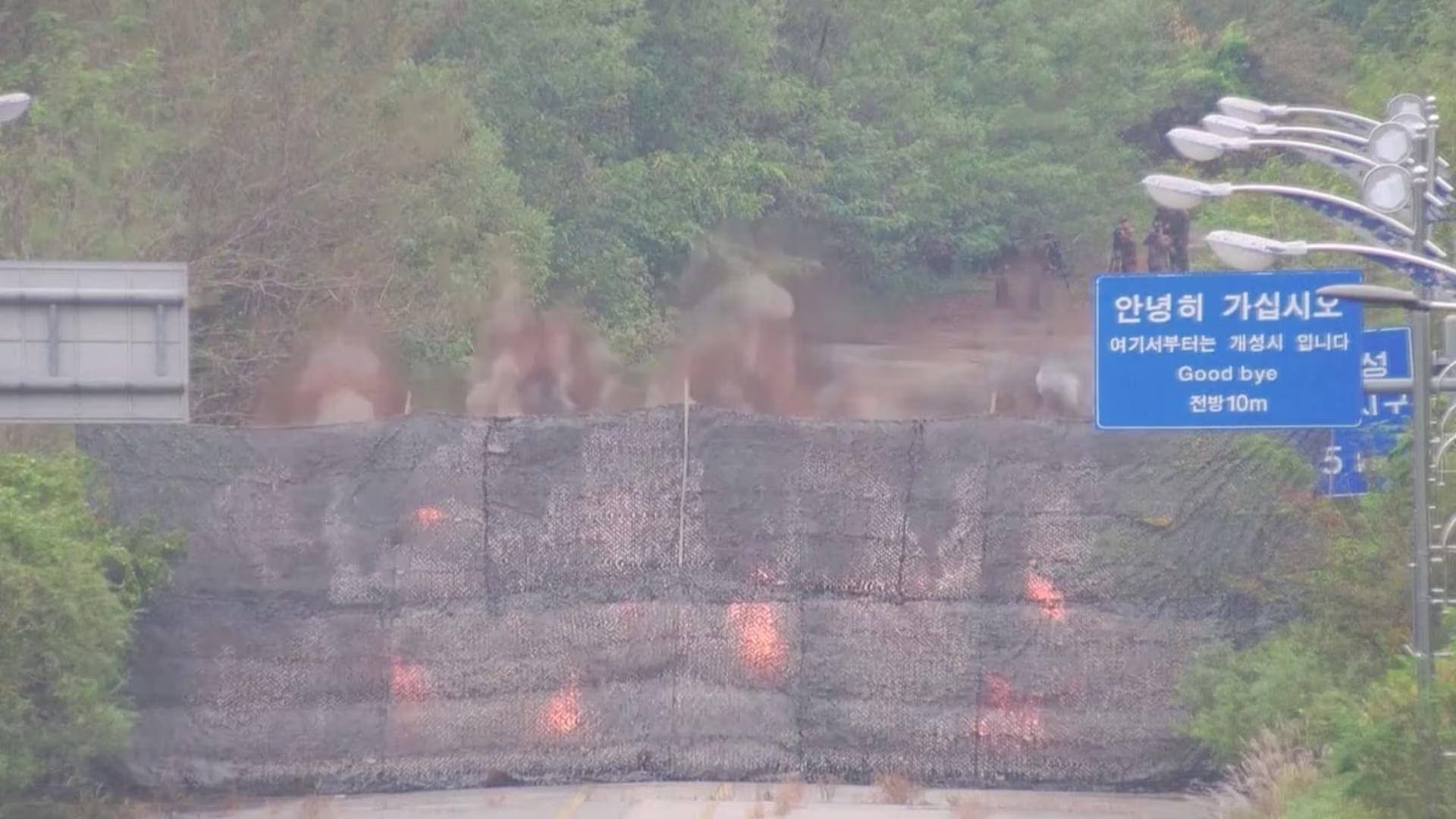
The leaflet incident sparked strong words from Kim Yo Jong, the powerful sister of North Korean leader Kim Jong Un. She warned that Seoul would “pay a dear price” for its alleged actions, although South Korea has not officially confirmed whether its military or civilians were responsible for the drones. The incident has added to the already strained relations, especially as both Koreas have also been exchanging criticisms over balloon launches of trash, a contentious issue that has further complicated inter-Korean ties.
The military demolitions on Tuesday were captured on video by South Korean authorities, showing explosions and a plume of smoke rising from the destroyed section of road. North Korean military officials were seen overseeing the operation, accompanied by dump trucks and earth-movers. South Korea, in turn, responded with warning shots fired south of the military demarcation line, a move that was intended to signal its disapproval of the North’s actions but resulted in no reported casualties or damage on Seoul’s side of the border.
North Korea’s recent actions align with its broader strategy of distancing itself from South Korea, a shift that has been most pronounced since Kim Jong Un declared the South a “primary foe” early this year. His government has since redefined the South as a hostile entity, signaling an end to any prospects of reunification, a topic that has long been central to both countries’ national discourse. Despite this, the two Koreas remain technically at war, with only an armistice, not a formal peace treaty, ending the Korean War in 1953.
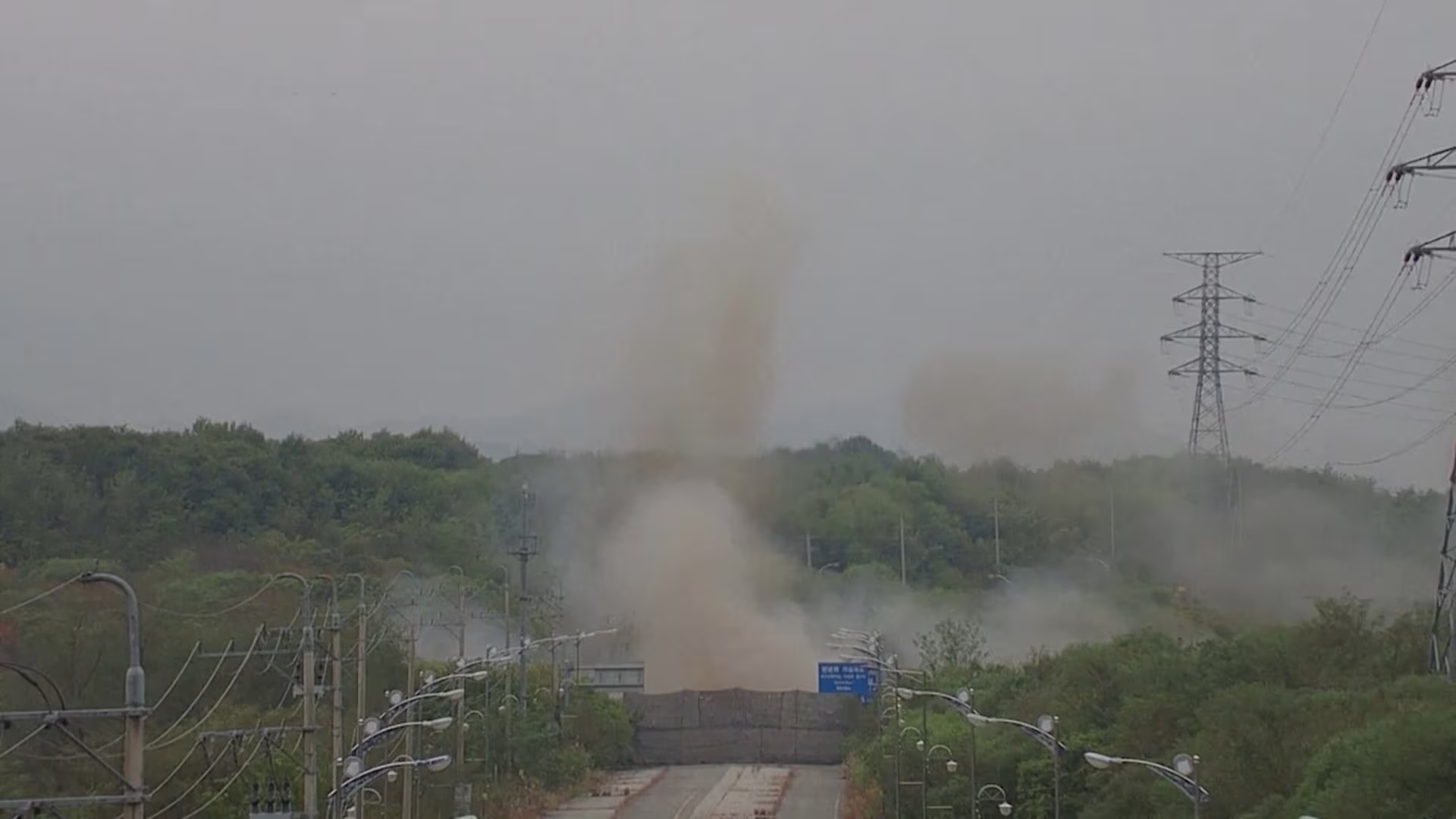
The cross-border roads and railways that were destroyed on Tuesday were originally symbols of the inter-Korean reconciliation efforts that flourished after a 2018 summit between the two leaders. South Korea invested over $132 million in rebuilding these links, offering cheap loans to North Korea to fund the project. However, North Korea has shown little interest in honoring past agreements, including the repayment of these loans, according to the unification ministry.
This is not the first time North Korea has taken drastic measures to sever ties with the South. In 2020, Pyongyang blew up a joint liaison office, which had been established to facilitate communication between the two countries. The demolition of the liaison office came after nuclear talks with the United States collapsed, highlighting the fragility of inter-Korean relations when external pressures mount. South Korea later filed a lawsuit seeking damages from the North for the destruction of the office, further underscoring the strained relationship.
China, a key ally of North Korea, expressed concern over the recent developments and called for efforts to avoid further escalation of the conflict. Beijing has consistently urged both sides to engage in dialogue to prevent further deterioration of relations, which could have wider implications for regional stability.
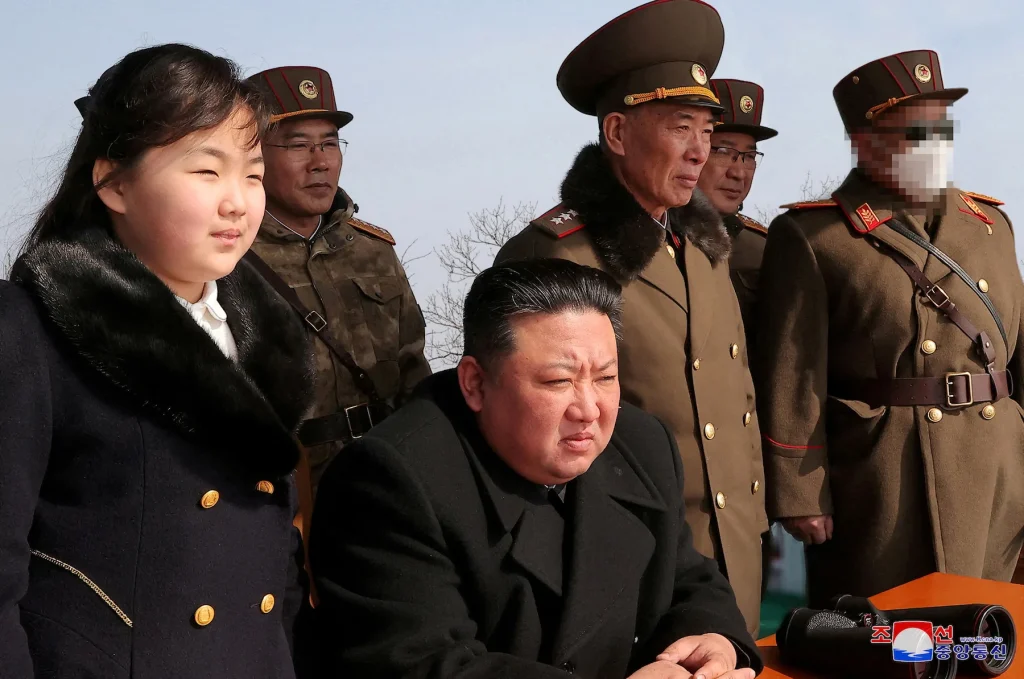
Meanwhile, South Korea’s Gyeonggi Province, which borders North Korea, announced it would be deploying a special police force to crack down on the practice of flying anti-North Korea leaflets from border areas. This follows the constitutional court’s overturn of a ban on such launches last year, sparking debate over whether these campaigns are protected under freedom of speech or whether they pose risks to public safety. Critics argue that such actions could endanger lives, while proponents insist on their right to express political views, regardless of the tensions they may cause.
The developments on Tuesday illustrate the deepening divide between the two Koreas and the growing challenges to any future dialogue or cooperation. With North Korea moving toward a more isolated stance and South Korea grappling with its own internal debates on the issue, the prospects for any reconciliation in the near future seem bleak.
